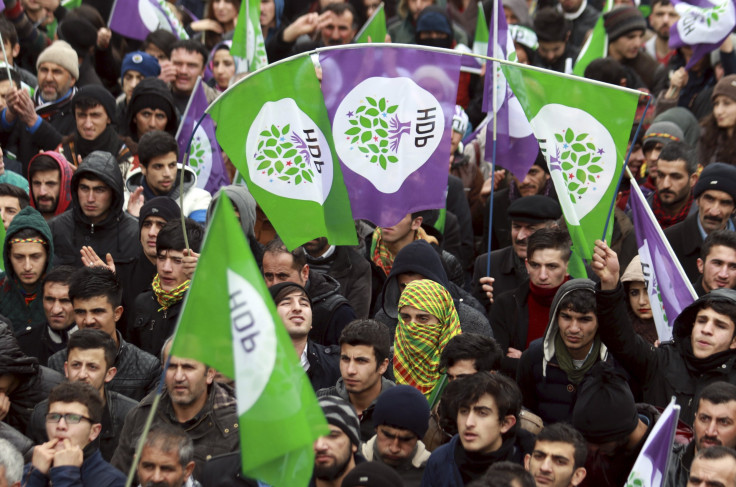In Turkey, Pro-Kurdish Party Officials Detained Amid Continuing Violence in Southeast

Police detained several people in a raid on an Istanbul office Friday after Turkish President Tayyip Erdogan supported legal action against the pro-Kurdish Peoples’ Democratic Party (HDP), Reuters reported. Violence in Turkey is at its worst levels since the 1990s in the country's predominantly Kurdish southeast.
Turkish officials said the crackdown was aimed at the youth wing of the Kurdistan Workers Party (PKK). Erdogan has made accusations that HDP is an extension of the PKK, a party the Turkish government considers to be a terrorist group. Several senior HDP officials were detained as part of the raid, and party officials told Reuters they were not given any reason for the detentions.
“The president says that ‘there is no Kurdish problem.’ So it means that the Kurdish problem has finished in an instant, just like that. When was it resolved? Kurds are in the dark,” HDP co-leader Selahattin Demirtaş said during a rally Thursday, local newspaper Hurriyet Daily reported.
Erdogan has argued Turkey faces a terrorism problem, and not a Kurdish problem. Turkish Prime Minister Ahmet Davutoğlu was scheduled to meet with the leader of HDP in late December to discuss constitutional reform and cooperation in Parliament, but the prime minister canceled the meeting.
“Recent statements by HDP officials reflect a politics that benefits from violence and tension. There is no longer any point in sharing the same table with this attitude,” a statement from the prime minister’s office read.
HDP, the third-largest party in Parliament, has said it is opposed to violent tactics regarding Turkey’s Kurds. Turkish officials said Thursday more than 300 Kurdish militants tied to PKK have been killed following the resumption of violence and as residents have tried to prevent the entry of security forces in the southeast.
For several decades the PKK has fought for greater Kurdish autonomy, with a ceasefire between the government and PKK collapsing in July. More than 40,000 people have died in the three-decade-long conflict.
© Copyright IBTimes 2024. All rights reserved.






















